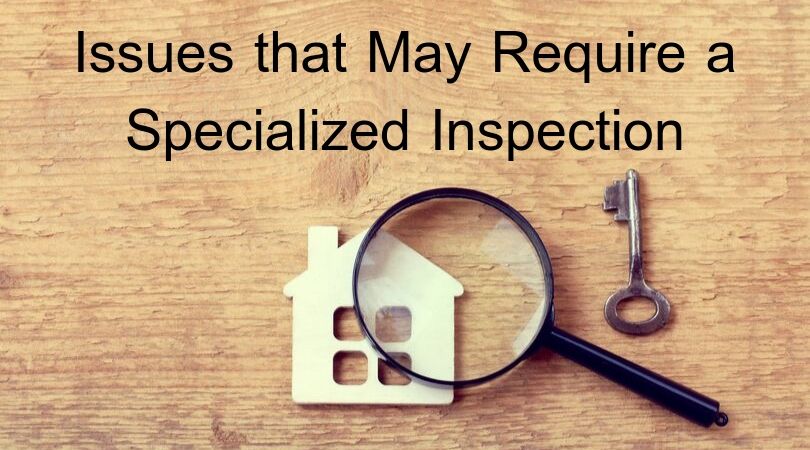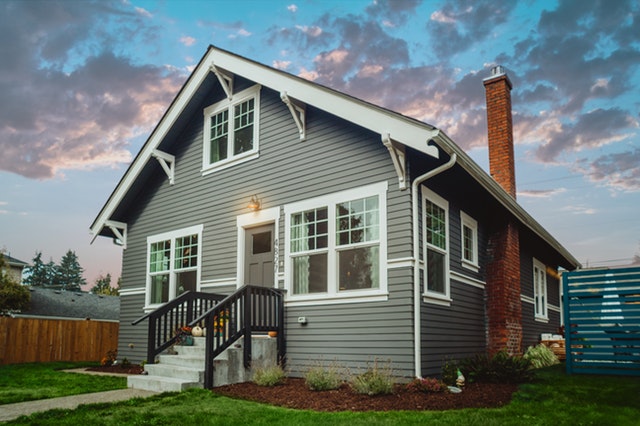
A home inspection is hugely important when you are about to purchase a home. The inspection process helps to determine the condition of the home and property to give you the best possible information on whether the home is a sound investment.
While an inspection is being done, the inspector may find issues that require a deeper look from someone that specializes in certain areas. Here are some issues that may require a specialized inspection in a home.
Chimneys:
There are a few signs that can point to bigger problems in a chimney. While an inspector is up on the roof they may see damage around the chimney and suggest a specialist be called in to give a solid confirmation on its actual condition. A certified chimney inspector will bring in a special camera to get a close and detailed look at the inside of the chimney. They will also thoroughly look at the exterior and all accessible areas of the chimney paying special attention to the  structural condition and the flue.
structural condition and the flue.
Geological:
Sometimes an inspector will find signs of drainage issues on the property while looking around the basement and/or foundation of a home. At this point, they will recommend a specialized geological inspection.
Sewers:
Many issues can arise from sewer lines that run through the property and connect a home to a public sewer line under the street. More often than not it is a good idea just to go ahead and have a sewer line inspection to determine the condition of the sewer lines in the yard and ensure they are not being obstructed by anything like tree roots, are leaking, or have major holes, or are clogged. Issues in sewer lines mean digging up the yard for replacement and a hefty cost of repairs. Some repairs can cost as much as $20,000. It is better to know before you buy a home what the sewer lines look like while you still have bargaining power.
Termites:
In some areas where termites are very common, a lender will require an actual termite inspection to be done to determine if a home has an infestation or previous damage from an infestation that did not get taken care of.
 Moisture/Mold/Toxins:
Moisture/Mold/Toxins:
Mold and other potential toxins can be lurking in hidden areas all over a home. Sometimes an inspector will find indicators that there may be an underlying problem that needs further investigation. At this point, they will advise a mold specialist to come in to take samples and test for toxins.
Asbestos:
This really only pertains to homes built before 1976, at a time when building materials commonly included asbestos. If you are purchasing an older home it is very important to have an asbestos inspection done to ensure there are not building materials containing the harmful substance that would result in the need for a costly abatement.
Home inspectors provide buyers with important insight into the condition of a home that can have a major impact on the outcome of a home sale. Making sure you have the best in-depth knowledge about a property to make an informed decision starts with an experienced and trustworthy home inspector. For experienced home inspectors in Champaign Illinois contact Pristine Home Inspections.
More Great Advice for Homeowners:
- Do I need an inspection on new construction?
- The Dangers of Lead-Based Paint
- 5 Questions to Ask Your Home Inspector
- How to Prepare Your House for a Home Inspection
